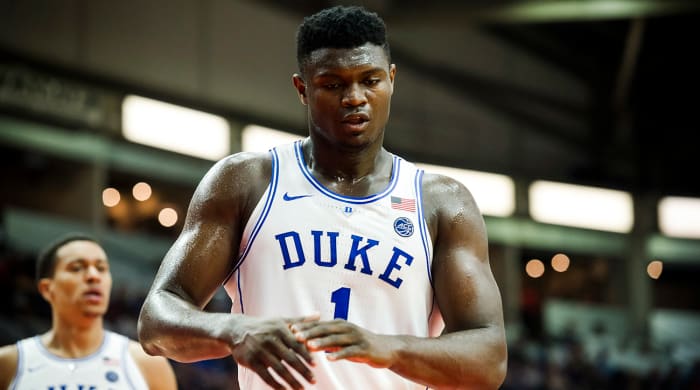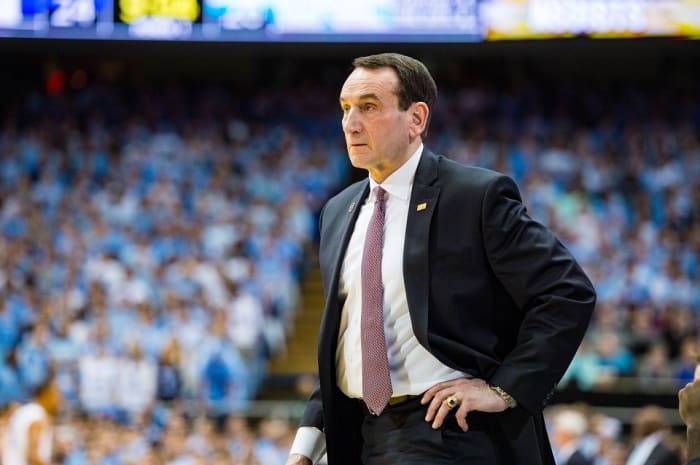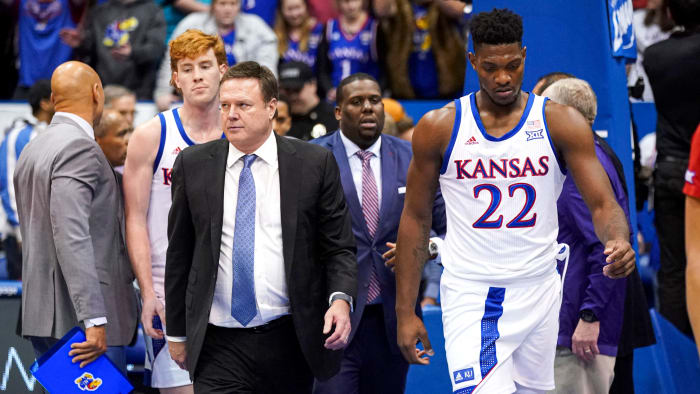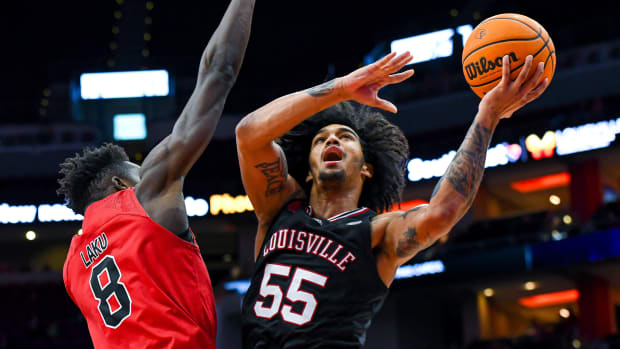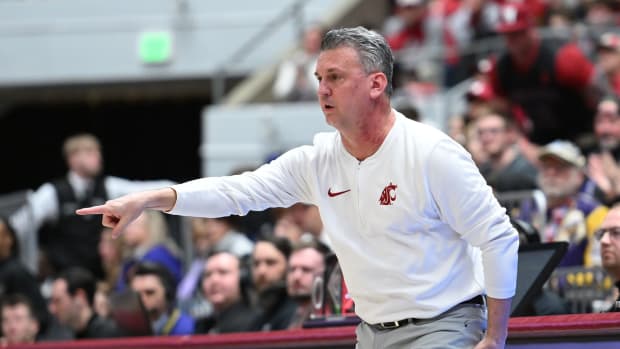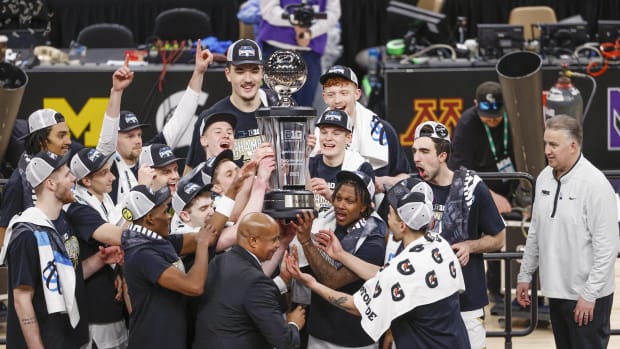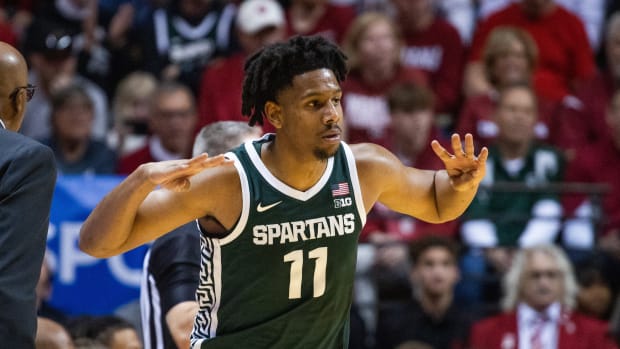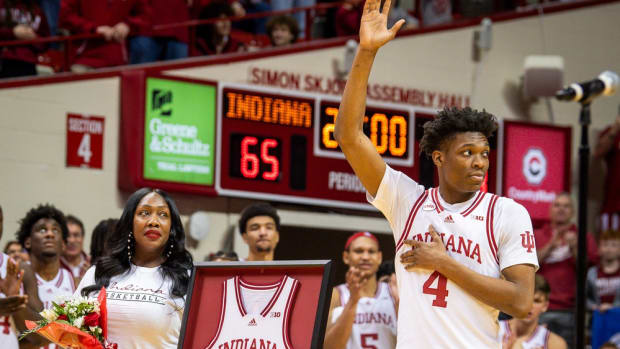Request For Admission in Zion Williamson Lawsuit Should Worry Duke
As legal documents go, a Request For Admission proves nothing. An attorney can request that a legal adversary admit to being a thief, a cheat, or the Czar of Russia—requesting it doesn’t make it true.
That’s the case with the Request For Admission that was filed last week in Miami-Dade Circuit Court and surfaced Sunday regarding former Duke basketball star and current NBA rookie Zion Williamson. It may result in a blanket denial from the current member of the New Orleans Pelicans. But it is quite a provocative court filing, ratcheting up the stakes in the lawsuit filed against Williamson by his former representative, Gina Ford, and thickening the smoke that surrounded the one-and-done sensation’s season with the Blue Devils.
As leading questions go, the 16 that Ford’s attorneys threw at Williamson and his Creative Artists Agency representatives are whoppers. They are asking Zion to admit that his mother, Sharonda Sampson, and stepfather, Lee Anderson, were on the take from multiple entities before and during his college career—from people associated with Duke, from people associated with shoe companies, and from agents.
Ford’s attorneys want Williamson to admit that he “knew that Sharonda Sampson demanded and received gifts and economic benefits from persons acting on behalf of Duke University (directly and/or indirectly) to influence you to attend Duke University to play basketball,” and that Anderson did the same.
They want him to admit that he “knew that Lee Anderson demanded and received gifts, money and other benefits from persons acting on behalf of Nike (directly and/or indirectly) to influence you to attend Duke University to play basketball,” and that Sampson did the same.
They want him to admit that “before you became a student at Duke University, you knew that Lee Anderson demanded and received gifts, money and/or other benefits from persons acting on behalf of Adidas (directly and/or indirectly) to influence you to wear Adidas shoes,” and that Sampson did the same. Also, that both Anderson and Sampson accepted impermissible benefits “from persons acting on behalf of Adidas (directly and/or indirectly) to influence you to attend a college that endorsed Adidas shoes.”
And they want Williamson to admit that Sampson, Anderson and others associated with him “received gifts, money and/or other benefits from persons other tha(n) NCAA certified agents between 1-1-2014 and 04-14-2019,” and also from an NCAA-certified agent before before enrolling at Duke.
Is it a fishing expedition? Or do Ford and her attorneys have the goods on Williamson? Are they trying to force a settlement? We don’t know yet. But the publicly filed document is a clear escalation of stakes in this lawsuit, with the presumed intent of making Williamson increasingly uncomfortable.
And, by extension, making people at Duke, Nike, Adidas—and the NCAA—uncomfortable.
Atlanta-based attorney Stu Brown, who specializes in NCAA rules cases, cited a “poke in the chest effect” of the Request For Admission. “It could be a little bit of a shot across the bow to say, ‘Whether our lawsuit has merit or not, do you really want to get into answering these sorts of questions?’ … It’s very possible that the defendant is going to deny. But this certainly was leading and provocative, as it was probably intended to be. And at some point you can be forced to answer questions under oath, in a deposition or in a courtroom.“
Another attorney who has been involved in cases pertaining to NCAA rules violations noted, “They’re signaling how a deposition of Zion’s family will go.”
This legal saga began when Williamson ended his brief representation agreement with Ford and signed with Creative Artists Agency. Williamson sued Ford to avoid paying her, arguing that his contract with her was unenforceable. Ford countersued, and this is an extension of that suit.
Requests for comment from Williamson via CAA were not returned Sunday. Nor were emails to Ford’s attorneys.
In response to an email requesting comment, Duke provided the statement it first released in early January regarding the lawsuit:
"As soon as Duke was made aware of any allegation that might have affected Zion Williamson’s eligibility, we conducted a thorough and objective investigation which was directed by individuals outside the athletics department. We found no evidence to support any allegation. Zion thrived as both a student and an athlete at Duke, and always conducted himself with integrity and purpose.”
"As soon as Duke was made aware of any allegation that might have affected Zion Williamson’s eligibility, we conducted a thorough and objective investigation which was directed by individuals outside the athletics department. We found no evidence to support any allegation. Zion thrived as both a student and an athlete at Duke, and always conducted himself with integrity and purpose.”
As everyone who pays attention to college basketball is acutely aware, Duke’s Ivory Tower reputation has been sullied in recent years but never permanently stained. The federal investigation of corruption in the sport laid bare an underground economy that was built around elite prospects and/or their families being paid, and Duke has signed more of them than anyone lately, but none of that scandal stuck to Mike Krzyzewski’s program.
There were media reports and a Michael Avenatti allegation about 2017-18 one-and-done star Marvin Bagley’s family being paid by Nike, but that has not resulted in an NCAA allegation against him or Duke. Bagley’s teammate that season at Duke, Wendell Carter, was named in a report involving expenses filed by aspiring agent Christian Dawkins, but neither did that result in an NCAA allegation.
And then there was Zion. His name memorably came up in federal court in 2018, resulting in potential trouble for Kansas but—to date—no trouble for Duke. A transcript of a wiretapped call between Jayhawks assistant coach Kurtis Townsend and Adidas consultant Merl Code was read in court in October 2018.
Code explained what Williamson’s stepfather was asking for in Zion’s recruitment: “I know what he’s asking for. He’s asking for opportunities from an occupational perspective, he’s asking for cash in the pocket and he’s asking for housing for him and his family.”
Townsend responded: “I’ve got to just try to work and figure out a way because if that’s what it takes to get him here for 10 months, we’re going to have to do it some way.”
That conversation is part of one of five Level One allegations the NCAA levied against Kansas. (Though NCAA Enforcement noted that it was not alleging that Code made an offer of a recruiting inducement, just an impermissible contact.) Jayhawks fans—and much of the rest of college basketball—have theorized that if Williamson turned down Kansas for Duke, the offer must have been better from the Blue Devils.
Per the NCAA response to Kansas that was made public last week, its enforcement representatives did interview Williamson’s mother and stepfather at some point. From that report: “(Redacted) and (redacted) reported that they knew Code and had spoken with him in the past. However, both (redacted) and (redacted) denied ever telling Code they wanted a housing arrangement, a job opportunity or money for their son’s commitment to the school. They did acknowledge telling coaches recruiting their son that they would relocate to the locale of the institution and were interested in job opportunities.”
Sources told Sports Illustrated that the family’s living arrangements in the Durham area were vetted by the NCAA. In response to Avenatti’s allegations pertaining to Williamson, Duke said in 2019 that it conducted its own investigation and found no irregularities.
What we are left with, at this juncture, is a forest fire of smoke surrounding Zion Williamson’s putatively amateur basketball career. Most people really don’t care whether he got paid in high school or college—but a whole lot of people do care if pious Duke and powerhouse Nike got away with something (or multiple somethings) while a host of other schools (and Adidas reps) are being rung up on NCAA charges.
The Kansas case is winding its way toward a hearing. So is North Carolina State’s case. Memphis is immersed in a battle with the NCAA. Louisville just received a Notice of Allegations last week. So have Oklahoma State, USC, South Carolina and TCU. Creighton and Auburn won’t confirm or deny receiving an NOA, but it is highly likely that both have. Alabama, Arizona and LSU would seem to be on deck.
If all 13 of those schools do wind up receiving Notices of Allegations, that’s 17 percent of the membership of the Power-6 basketball conferences. That’s not a small number of implicated programs.
And yet that number wouldn’t include Duke, the national leader in talent procurement in recent years. That’s why a lot of people in college basketball would like to see Gina Ford’s provocative questions answered by Zion Williamson, under oath if need be.
